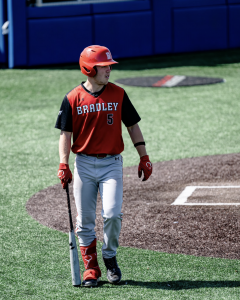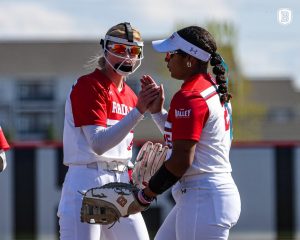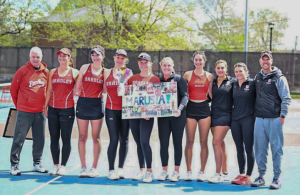Wow, I just made a Facebook and now I’m supposed to make a Twitter too? Really? All these forms of social networking have led to a new problem in sports.
During the last year or so, several high-profile athletes have created Twitter accounts to make themselves more accessible to their fans. But many times these accounts have led to public scrutiny for these athletes and most of them have closed their accounts.
The most recent Twitter-related news item involved, perhaps the most famous twittering athlete, Chad Ochocinco of the Cincinnati Bengals and Chicago Bears quarterback Jay Cutler. On Monday, Ochocinco started the week leading up to the Bears-Bengals game by telling Cutler that Peanut Tillman should cover him and a safety should come over the top.
Ochocinco capped it off by telling Bears defensive end Alex Brown to make the Bears’ defensive backs create their own Twitter accounts so he could communicate with them.
Now this is good for the game. Over the course of history in sports, trash talking has been part of the game. Many infamous sports incidents have stemmed from trash talk, like in Game One of the 1997 NBA Finals, which was played on a Sunday, when Bulls forward Scottie Pippen told Utah Jazz forward Karl Malone, “just remember, the Mailman doesn’t deliver on Sundays.”
Malone didn’t live up to his moniker, the Mailman, and he missed two key free throws at the end of the game and set up a game winner for Michael Jordan.
Trash talk is part of sports. Its practice takes almost as much craft as playing the actual game. Most pickup games contain some sort of jabber between opponents. Without it, meaningless games feel empty and carefree.
It adds fire to otherwise unimportant games l such as the one on Sunday.
But a problem does arise from this new medium of connecting with professional athletes.
More often than not, something that is deemed newsworthy involving a “tweet” from an athlete is not a good thing.
For instance, Denver Nuggets guard J.R. Smith closed his Twitter account after some his of his tweets caused controversy. In the NBA offseason, Smith spent some time in jail after he crashed his car and killed his best friend.
After his release, he started his account and began using vernacular normally associated with a gang.
This all came after he had supposedly matured.
Several other NBA players, including Shaquille O’Neal and Charlie Villanueva, have had problems with what and when they post on the micro-blogging site.
Shaq tweeted during halftime of a game while playing a game against the Phoenix Suns, and he caught a lot of flak for not getting ready for the second half.
Villanueva started the halftime Twitter fad after he tweeted during a game against the Boston Celtics from his cell phone.
All in all, Twitter adds a new layer to sports.
At one time, athletes seemed so above the fans. I remember sending letters to athletes when I was little, just hoping for an autograph.
Now after a couple of clicks, I can basically hear them speak.
Bill Hopkins is a sophomore sports communication major from Oswego. He is the Scout sports editor.
Direct questions, comments and other responses to whopkins@mail. bradley.edu




